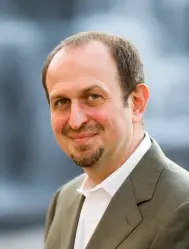2024
Content from the Brookings Doha Center is now archived. In September 2021, after 14 years of impactful partnership, Brookings and the Brookings Doha Center announced that they were ending their affiliation. The Brookings Doha Center is now the Middle East Council on Global Affairs, a separate public policy institution based in Qatar.
On July 28th, 2009, the Brookings Doha Center hosted a discussion entitled “Democracy Promotion and America’s Key Arab Allies: Limits and Prospects.” The panel was addressed by Roula Attar, the resident country director in Jordan for the National Democratic Institute for International Affairs and Brookings Doha Center Visiting Fellow, Anouar Boukhars. Hady Amr, director of the Brookings Doha Center, moderated the discussion.
While based at the Brookings Doha Center, Boukhars has been conducting research on the record of democracy promotion in key Arab allies of the United States, specifically, Egypt, Jordan, Kuwait, and Morocco. He began the talk by discussing the policies of the Bush administration, which heavily emphasized the “freedom agenda” in the Arab world, but was ultimately unsuccessful in many of its efforts to bring real democratic change on the ground.
While Boukhars did praise Bush for investing more resources and launching more initiatives to tackle the issue of authoritarianism in the Arab world, he admonished the administration for not providing the mechanisms for actually implementing reform. On the contrary, those who benefitted from these policies were often the authoritarian regimes themselves, which would often be lauded for making only superficial of reforms that only in a very limited way advanced the cause of real democracy.
However, he was adamant that this failure of the Bush administration was not a reason for the Obama administration to give up the cause of promoting democracy in the region, calling such an argument “reductionist.” Rather, the yet-untarnished Obama administration has a huge opportunity to take up this task and actually implement some changes. Boukhars stressed, however, that in order for this to be possible, President Obama cannot continue the tradition of exaggerated praise for superficial reform. He also argued that the new administration should remove the stigma of engaging at least certain Islamist groups because it is precisely this type of marginalization that leads to social upheaval and potential security threats for the United States.
Attar opened by addressing what she saw as three of the key misconceptions about democracy in the Arab world. First, she said that the depiction of democracy as a Western value that is being imposed on the Arab world is inaccurate. On the contrary, she argued, it is a universal concept that can mean a greater delivery of benefits for all of society.
Second, she echoed Boukhars in emphasizing that although the Bush administration highlighted democratization programs as a priority, many of the programs existing today were in place long before Bush took office. The organization Attar represents, the National Democratic Institute, has been working in the Arab world for two decades.
Finally, the third misconception is that Arab reforms are responses to the demands of the West. Attar said that many regimes only appear to entertain the concept of reform because of a “desire to look good to the rest of the world,” not because they are interested in real change. She stressed that democracy is a continuous process of reforms, not a goal that can be obtained in six months and as such, the United States must have reasonable expectations on how quickly change will come about.
Given the long-term nature of political reform, President Obama must decide if he wants to invest seriously in this endeavor. However, even if this new administration focuses on democratization efforts, the real push for change must come from the people in the Arab world. The United States can offer technical support, and the benefit of experience, but it cannot force people to want to change.
Following the remarks of the two speakers was a lively question and answer session moderated by Hady Amr. Some audience members were curious about the difference between theoretical diplomatic support for democracy in the Arab world and how this gets translated into actual efforts on the ground.
There was also a discussion of the Millennium Challenge Corporation, a U.S. Government corporation set up in January 2004 which allocates aid based on a country’s performance on various policy indicators, including civil liberties, rule of law, control of corruption, and government accountability. Attar also answered questions about the role of education in the democratization process, stressing the importance of civic education for youth in order to foster support for democratic society and civic duty at a young age.
Due to sound quality issues, the accompanying transcript does not include the Question and Answer session.
Agenda
-
July 28
-
Panel
 Anouar Boukhars Former Brookings ExpertRARoula Attar Resident Country Director in Jordan, National Democratic Institute for International Affairs
Anouar Boukhars Former Brookings ExpertRARoula Attar Resident Country Director in Jordan, National Democratic Institute for International Affairs -
Moderator
 Hady Amr Former Brookings Expert
Hady Amr Former Brookings Expert
-

